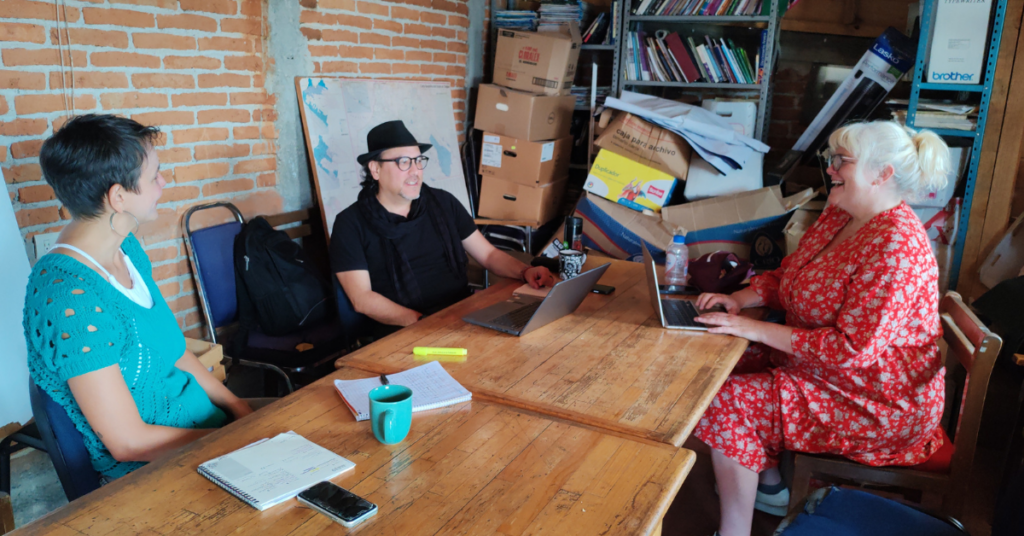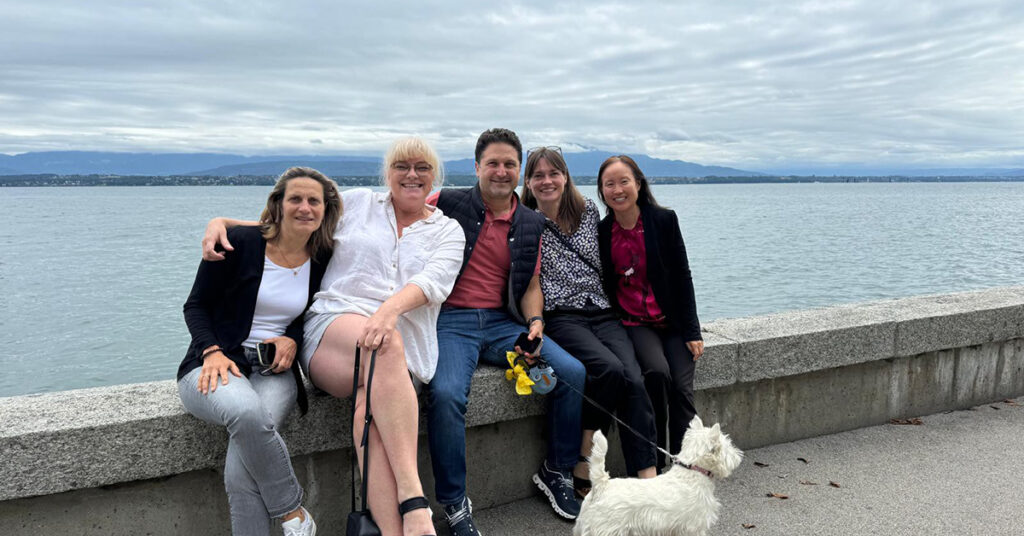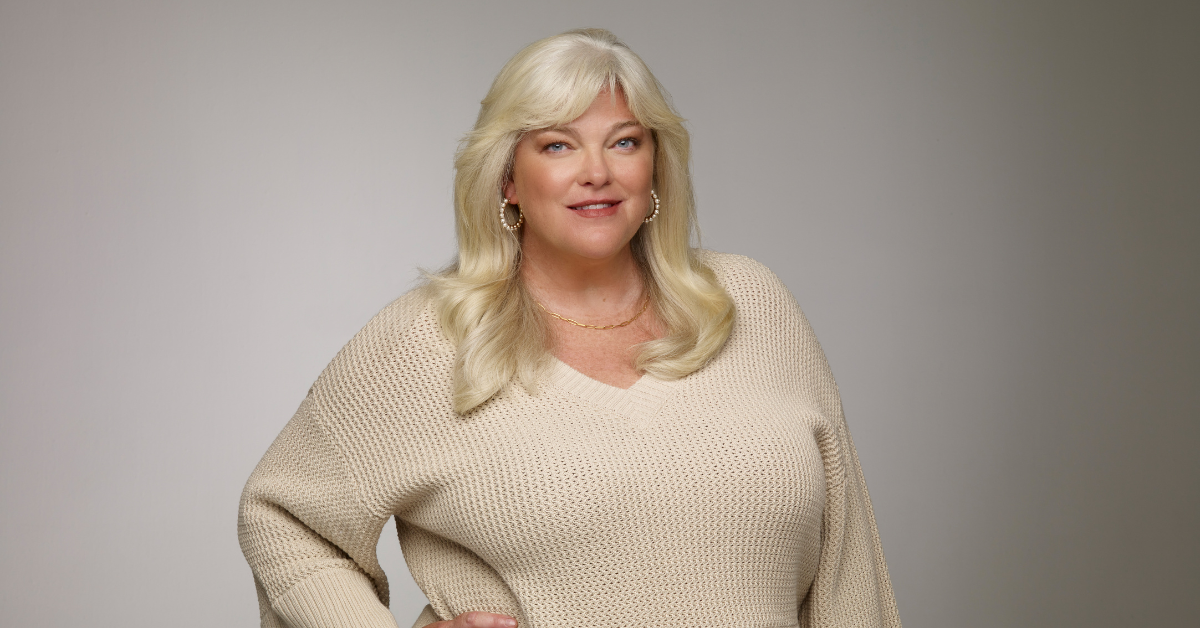When I first announced that I was moving to HURIDOCS, a lot of people asked me, “But what does HURIDOCS actually do?” For someone who had been following the work of the organisation for a long time this question kind of surprised me. What was there to question? HURIDOCS is a well-established human rights organisation, was founded by Martin Ennals, one of the most prominent human rights legends of our time, is renowned for its documentation technology and support to civil society, and has been a key voice in the ‘tech and social change’ movement since the beginning.
But when I started to get into the weeds of our history, I realised why the HURIDOCS story may be confusing to some people. HURIDOCS has always been a ‘support player’ in the civil society world. We were founded on the notion that increased human rights impact relies on sound documentation practices and formats – our Events Standard Formats being a case in point where we developed a fundamental methodology for the quest for truth. Developing, mainstreaming and building capacity around documentation and monitoring methods is pretty straightforward, but it was from here that the mission of HURIDOCS started to grow and evolve. From the early 90s, it became clear that technological advancements such as the widespread use of personal computers, the replacement of faxes with emails, and the use of dial-up modems to connect to the internet created a whole new playing field. With the advent of the digital age, it became clear that standardised documentation practices wouldn’t be enough to keep civil society in ‘fighting form’.

Human rights data would have more impact if it was more accessible, easily shareable, and improving at the pace of civil society’s contemporaries – the issue was moving data around. Thus started the phase of HURIDOCS history I like to think of as our tech accompaniment phase: from the early 90s where we built original databases and over the years iterated on this approach by providing civil society with technological tools such as Evsys, Win Evsys, OpenEvsys, Casebox and, getting us to present day, Uwazi. Uwazi as an open-source database application has been supporting legal repositories and the documentation of human rights violations in every continent on the globe for more than seven years.
This means that people have not necessarily seen ‘our’ work, but they have seen the impact of our work through the amazing, dedicated and courageous work of our civil society partners engaging with our methodologies and tools.
So, if the 90s, the aughts and the 10s were HURIDOCS’ ‘tech accompaniment’ phase, what is the best way to explain what we do now? I like to think of it as keeping civil society on the right side of the digital divide.
The digital divide is not new but the proliferation of machine learning, artificial intelligence, misinformation and disinformation, not to mention the exponential growth in the amount of data and content being generated every day, means that the digital divide is being defined and shaped by new factors. How can civil society keep track of and sort through all this data? Verify it? Keep it secure? Find patterns in the chaos? These are the contemporary challenges that are so familiar to so many of us.
HURIDOCS collaborates with civil society to bring the most current, trusted and oftentimes innovative data management, curation and analysis tools so that, as a community, civil society stays at pace with our contemporaries. We are also committed to respectfully ‘staying in our lane’. By this I mean that we are committed to partnering with other organisations in this space to share work, tools, resources and learnings as a key sustainability strategy. We do all of this so that this new digital divide does not grow between civil society and governments, companies or other potential adversaries. So that civil society is ‘fit for purpose’ for the future.
I recently visited the southernmost state of Mexico called Chiapas where I met with more than 20 organisations who are using our flagship tool Uwazi. The goal was to learn more about their experiences with Uwazi, their local context(s) and what ‘fit for purpose’ means to them. It was clear that being able to securely share information across organisations working on a plethora of issues was a high priority for most of these organisations. Whether they are working on migration, displacement, women’s rights, Indigenous rights, the right to food or other issues: all organisations in the state need to share data about attacks, movements and other violent or concerning trends of both state and non-state actors. In response, HURIDOCS is working with them to create a Chiapas-wide Observatory to meet this contemporary need.
As I look back over the year that I joined the team at HURIDOCS, I am proud that we supported projects with 113 partner organisations in 49 countries in 2023. Our resolute teams worked closely with our partners and networks to fulfil our mission to cultivate and strengthen them with documentation technology and strategies so they are in becoming ‘fit for purpose’ for the future. We bolstered their use of technology and strategies to collect the truth, seek justice, advocate for accountability, build collective memories and make human rights information and data more accessible and usable. From launching the new Uwazi-powered African human rights case law analyser to documenting violations against journalists in El Salvador, and from building an impactful virtual museum for victims of the conflicts in Afghanistan to supporting our partners with documenting war crimes in Ukraine – all of these projects and partnerships have one common goal in mind: strengthening civil society to increase the impact of the essential work they do.

From this experience and many others over my first year at HURIDOCS I would argue that a strong civil society of the future is one that:
– has access to open-source technology as an alternative to being beholden to tech giants;
– works together to share resources and knowhow as a key sustainability practice;
– is safe from government hacking and surveillance;
– has access to technologies that preserve the veracity of their information; and
– uses advances in machine learning and AI to minimise their administrative load of sorting data, thereby – freeing up time for them to think about their strategies and campaign goals.
As we navigate this new digital divide, we remain committed to collaborate closely with civil society to build relevant, innovative tools and develop smarter ways of working. We strive for a world where information is the catalyst for positive change and human rights are respected, equally. Our vision to strengthen civil society to work better, for a better future, remains our north star.
If you would like to learn more about HURIDOCS, Uwazi and its features please visit our website and if you would like to talk about what you think our community needs to stay ‘fit for purpose’ please be in touch!
